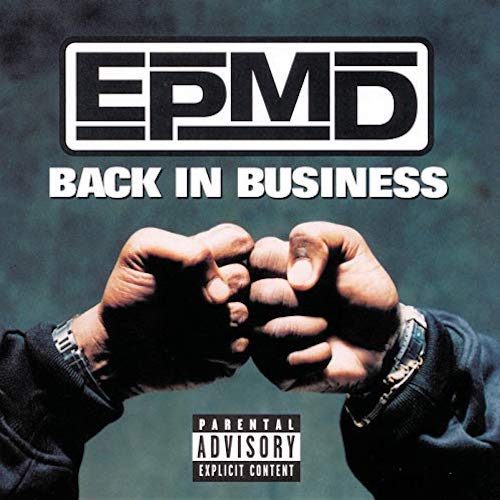1997 marks a weird turning point in the history of Erick Sermon and Parrish Smith. Five years earlier “Business Never Personal” seemed to signal the end of an era of brilliant Brentwood bombs being dropped on the hip-hop nation. Despite going gold on record after record and launching the careers of artists like Das EFX, Redman and Keith Murray, the empire suddenly collapsed under its on weight with accusations of conspiracy to defraud by Sermon going hand in hand with charges that E-Double had Smith’s home burglarized as payback. It was as ugly a dissolution of a successful rap group as the rap world had ever seen. Indeed for EPMD, the business got WAYYYYY too personal.
All of a sudden “Da Joint” dropped like a gift from the Gods, suggesting that the inconceivable reunion of one of rap’s greatest team had overnight gone from “impossible” to “happening RIGHT NOW.” As a teaser for a comeback it certainly fit the bill like Harriet Tubman on a twenty — something long awaited, highly anticipated and sure to be celebrated. The simple and hypnotic beat co-produced by Sermon and Rockwilder served its purpose without overstaying its welcome, building a formula he’d use to similar success on Method Man and Redman’s aptly titled “Da Rockwilder.” Not every beat has to be epically grandiose — sometimes it’s enough to be head nodding and fresh. Sermon starts out in typically braggadocious fashion by stating “I make a million bucks, every six months, and y’all/hating my game, saying my name, they call/me the E” and then challenging would be foes with “Who want it? Come and see me like 112”.
The funny thing though is that the group’s return had already been revealed a month earlier on the now obscure “How to Be a Player” soundtrack. The film has to be considered a flop given that it only made $14 million on a budget of $12 million, and if you know anything about “Hollywood math” that means it actually LOST money and a lot of it. “Never Seen Before” was an even better introduction to EPMD’s return though compared to the official first single, as The Meters sample they rap to evoked memories of Public Enemy’s “Timebomb” and Special Ed’s “Fly M.C.” — songs by EPMD’s contemporaries when all were at their 1980’s peak.
“Back In Business” is a mixed bag of tracks musically and emotionally. Old divisions seemingly got erased overnight. Previously artists who had been put on the scene by EPMD had to choose loyalty to either Erick or Parrish when they broke up, but here Das EFX can be found rocking with the duo on “Intrigued,” while Keith Murray and Redman both weigh in on the symphonic “K.I.M. (Keep It Movin’).” You know the moment Reggie Noble starts the song with the words “I grab my D#%^” it’s on like Donkey Kong.
At other times the group seems to be leaning a little TOO hard into nostalgia for their past successes. It’s not that “You Gots 2 Chill ’97” is a terrible song, but it only makes you yearn to hear the original, when both rappers were young, new, hungry to the game emcees on the tiny Sleeping Bag Records imprint. It’s just unsettling to hear rappers cover their own hits when they don’t sound like they used to, changing some but not ALL of the lyrics from the original. Two years later on “Out of Business” this would get even worse.
“Do It Again” walks that fine line between being dope and being cliched and corny. Parrish’s pen seems to have lost its wit lyrically with punchlines like “Party til Daylight, just like Stallone” that barely worked then and have not aged well in the interim. Leaning so hard into Tom Browne’s “Funkin’ for Jamaica” invites comparisons to songs by the Jungles Brothers and Snoop Dogg that are far more qualified to be classics. An over-reliance on the familiar also infects “Last Man Standing” and “Jane 5” among others. It should again be stressed this doesn’t result in BAD songs, just songs that would have made more of an impact back at the height of their career. Despite making a grand return after a five year hiatus EPMD suddenly seemed dated in a charming but puzzling way. Erick Sermon was banging out solo tracks and producing hits during that interim, so why eschew the new freshness he was doing and try so hard to be a nostalgia act?
In conclusion “Back In Business” is a FINE album. It’s neither great nor is it terrible. The reason that’s a disappointment is because the previous four EPMD albums had established a dynasty — each one being a hip-hop classic in its own right for its own reasons. “Fine” isn’t really suitable for what had been one of hip-hop’s greatest acts before their simultaneous explosion and implosion as a unit. Then as now it’s great to know they squashed the beef and got back to “Business” but listening to the album one can’t help but think they could have owned the 1990’s instead of becoming a dated sounding imitation of themselves had they not been on a five year hiatus.

